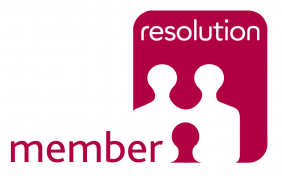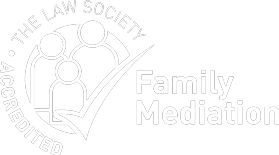When actions speak louder than words
Depp v Heard. Vardy v Rooney. The media frenzy around these very public court cases may have died down, but the impressions formed of those involved will last a lifetime.
As spectators, we follow the ups and downs of these trials, picking up titbits in the press or becoming drawn into watching hours of live footage. We debate what we think actually happened and who we believe. And, as well as making judgements based on what those at the centre of the cases say, we’re influenced by how they behave.
This may be true of everything life, and it’s particularly worth bearing in mind if you find yourself having to ask the court to help you resolve a family issue. While the emphasis these days is very much on avoiding court wherever possible, and to use alternative dispute resolution (ADR) instead, the court remains hugely important in family matters. When terms of a divorce, or arrangements for children, for example, can’t be resolved between couples (with or without the help of ADR), family lawyers like me will prepare clients for what to expect at the court hearing. As part of this, I remind them about the scrutiny that will fall on them when they’re in the courtroom.
A roll of the eyes, a heavy sigh, a sideways glance. These actions, whether voluntary or not, rarely go unnoticed in court. They can reveal feelings that contradict the things you say. They can undermine your position. They can make others see you in a different light. It’s really important to be aware of this. Clients are usually keen to make sure they don’t say the ‘wrong’ thing, but it doesn’t always occur to them that the way they behave is just as important.
It’s the reason I spend time with clients before a hearing, talking through even the most basic (but important) things, including: where they’ll sit when they get into the room, who else will be there, where the judge will be and how he or she should be addressed. I also help with questions like:
- What if I don’t know the answer?
- Can I call my ex a liar?
- What should I do if I want to take back something I’ve said?
- How do I challenge something I don’t agree with?
Alongside knowing their statement inside out, being prepared in this way means clients aren’t usually taken by surprise at court; they can go in there understanding the format and purpose of the hearing and feeling confident in how they will deal with it. As well as making for a less stressful process, I think this leaves less room for actions that could be misinterpreted, or which could otherwise reflect badly on them.
And this isn’t just relevant to court proceedings; being mindful of body language and the way we express ourselves can be so important during mediation, arbitration and collaborative law (types of ADR) too. As a mediator, I help families reach agreement about how they’ll divide their assets on divorce, where their children will live, and other difficult subjects that require a great deal of pulling together to get resolved. Where one party appears to be hostile or otherwise uncooperative, this can make it extremely difficult to achieve the aim of mediation: a resolution worked towards by, and agreed jointly between, the parties.
The number one rule that I set for any client before a court hearing or ADR is: tell the truth. Honesty is without question the best policy. And my second is: be aware of how you’ll come across in the courtroom. This doesn’t mean you should supress all emotion or become someone different; far from it. But it may mean avoiding exaggerated facial expressions, or biting your tongue when you hear something you don’t like. There will be moments that test you – undoubtedly. But trying to remain calm in the face of these should stand you, and your case, in good stead.
For advice about a family matter, contact me on 020 3811 2894 or email Susi Gillespie.











